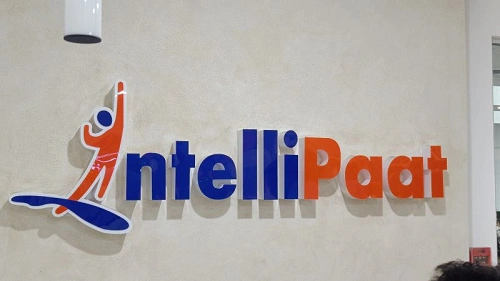Securing a business loan is a pivotal step for any enterprise, whether you’re a startup seeking initial capital or an established company planning a major expansion. A critical factor in this process is the interest rate for business loan, which directly impacts the total cost of borrowing and the feasibility of your repayment plan. In India, the landscape of business loan rates is dynamic, influenced by a multitude of internal and external factors. Understanding these elements is key to making an informed financial decision and securing the most favorable terms for your business.
How Lenders Determine Interest Rates?

The interest rate offered by a bank or a Non-Banking Financial Company (NBFC) is not a fixed number; it’s a personalized quote based on a risk assessment. Lenders use a combination of quantitative and qualitative data points to calculate the final rate. Here’s a look at the primary factors that influence this calculation.
Borrower’s Financial Health and Creditworthiness
- Credit Score: A business’s credit score, often a CIBIL score in India, is a major determinant. A high score (typically 750 or above) signals financial discipline and a low risk of default, often leading to a lower interest rate. Conversely, a low score or poor repayment history can result in a higher rate or even rejection.
- Business Vintage and Turnover: Lenders favor businesses with a longer operational history (e.g., more than three years) and consistent, high annual turnover. These metrics indicate stability and profitability, making the business a more attractive borrower.
- Debt-to-Income Ratio: A business with a high debt-to-income ratio is perceived as a higher risk. Lenders will assess how much of your current income goes towards existing debt repayments to determine if you can handle additional loan obligations.
The Loan and Its Structure
- Secured vs. Unsecured Loans: This is perhaps the most significant factor. Secured business loans, which require collateral such as property or machinery, carry a lower risk for the lender. As a result, the interest rate for business loan with collateral is considerably lower than for an unsecured loan, which doesn’t require any security.
- Loan Amount and Tenure: The principal amount and the repayment period (tenure) also play a role. While some lenders may offer a marginally lower rate for larger loans, others might view longer tenures as a higher risk due to a prolonged exposure to market fluctuations, which could lead to a higher rate.
Data-Driven Insights on Interest Rates in the Indian Market
In India, interest rates for business loans are subject to market conditions and the policies of the Reserve Bank of India (RBI). The rates are often linked to a benchmark, such as the Repo Rate, MCLR (Marginal Cost of Funds based Lending Rate), or RBLR (Repo Rate Linked Lending Rate). As of late 2024 and early 2025, a broad overview of interest rates suggests a significant range, from as low as 8% per annum for well-qualified borrowers from public sector banks to upwards of 26-30% for high-risk profiles from some NBFCs.
For instance, major public sector banks like the State Bank of India (SBI) and Indian Bank may offer rates starting at around 8.00% p.a. and 8.80% p.a., respectively, particularly for Micro, Small, and Medium Enterprises (MSMEs) under specific schemes. In contrast, NBFCs and fintech lenders, known for faster and more flexible processing, may have higher starting rates. For example, L&T Finance and Poonawalla Fincorp have rates starting from 15% and 13% p.a. respectively, while some smaller lenders might go even higher. (Source: Paisabazaar, ClearTax, BankBazaar).
This wide variation underscores the importance of a data-driven approach to your loan application. Comparing rates from different lenders, including public and private banks as well as NBFCs, can reveal significant savings.
Strategies to Secure a Low-Interest Business Loan
A proactive strategy can significantly improve your chances of getting a favorable interest rate for business loan. Here are some actionable tips:
- Maintain a Strong Credit Score: Regularly monitor your personal and business credit scores. Pay all your bills and EMIs on time, and avoid taking on excessive debt. A high credit score is your most powerful negotiation tool.
- Prepare a Solid Business Plan: A well-researched business plan, including detailed financial projections, demonstrates your business’s viability and your ability to repay the loan. This can instill confidence in lenders and help you secure a better rate.
- Provide Collateral (If Possible): If you have valuable assets, consider a secured loan. Even if you’re approved for an unsecured loan, offering to pledge assets can sometimes help you negotiate for a lower interest rate.
- Explore Government-Backed Schemes: The Indian government offers several schemes to support MSMEs and startups, such as the Pradhan Mantri Mudra Yojana (PMMY) and the Credit Guarantee Fund Trust for Micro & Small Enterprises (CGTMSE). These schemes often come with subsidized or lower interest rates for business loan and may not require collateral for certain loan amounts.
- Compare and Negotiate: Don’t settle for the first offer you receive. Use online platforms and financial advisors to compare loan products from multiple lenders. Once you have a few offers, you may be able to leverage them to negotiate a lower rate with your preferred lender.
Conclusion
A business loan is a critical financial instrument for growth. By understanding the factors that influence interest rates and adopting a data-driven, strategic approach, you can significantly reduce your borrowing costs. Taking the time to build a strong financial profile and meticulously research your options will ultimately pay off, ensuring your business’s financial future is built on a solid foundation.
Anantha Nageswaran is the chief editor and writer at TheBusinessBlaze.com. He specialises in business, finance, insurance, loan investment topics. With a strong background in business-finance and a passion for demystifying complex concepts, Anantha brings a unique perspective to his writing.


